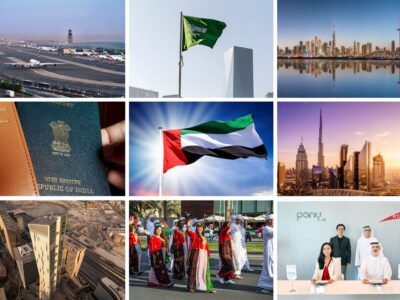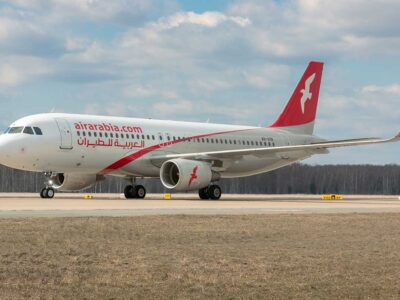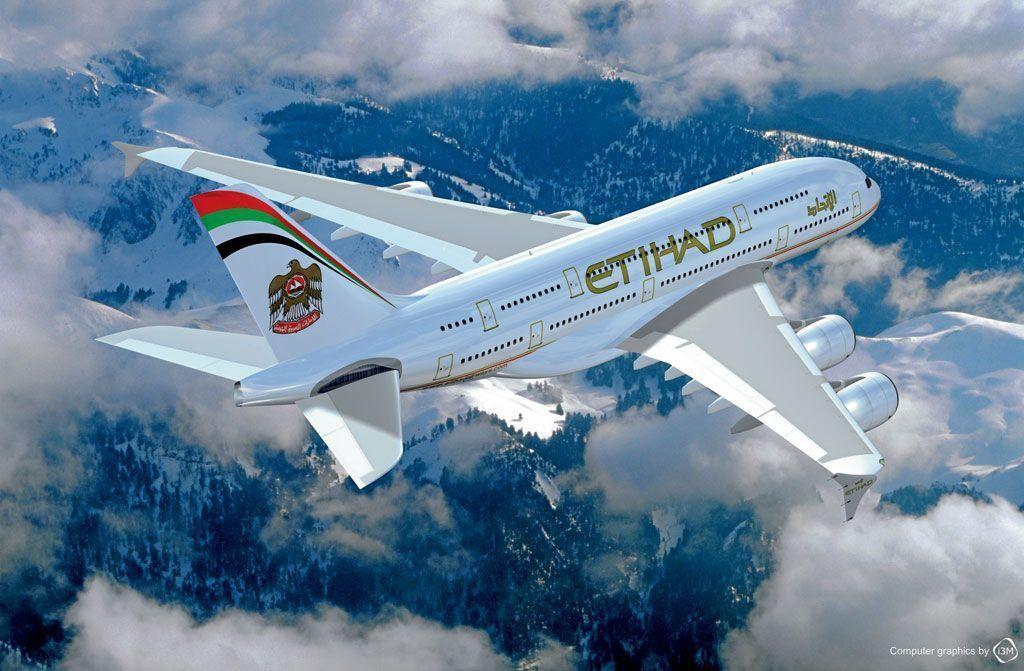Etihad Airways
plans to intensify its strategy of growing passenger numbers via tie-ups
with other carriers, bucking the go-it-alone stance of Gulf rival
Emirates, CEO James Hogan said in an interview.
The
third-largest Middle Eastern airline views signing deals and taking
stakes in smaller operators serving key markets as a vital complement to
spending money on planes as it builds Abu Dhabi into a hub for
inter-continental travel, Hogan said.
Emirates,
the largest international airline, has nine codeshare accords and no
foreign holdings, while Etihad has 35 partners and is spending $400
million to build stakes in Air Berlin and Air Seychelles.
The
difference arises because Emirates and Qatar Airways, with 11
allies, are 26 and 18 years old, respectively, and have had time to
grow, whereas Etihad was founded in 2003 and needs feeder traffic, Hogan
said.
“I don’t
have a mandate to be the biggest airline in the world, but I do have a
mandate to be smart,” Hogan, aged 55 and CEO at Etihad since 2006, said
in London. “They’ve got their strategies. My strategy from day one was
to build strong bilateral relationships with codeshares and stretch my
network.”
Etihad,
which carried 8.3 million passengers in 2011, up 17 percent, compared
with 31 million at Emirates in the 12 months through March 31 and 16
million at regional No. 2 Qatar Air over the same period, has also
looked at Ireland’s Aer Lingus Group Plc and will explore other options
to tap key markets where airline managements are amenable to a tie-up,
he said.
“We’re not
just collecting brands,” Hogan said. “It’s got to be something which is
the right fit, brings in incremental revenue and, through restructuring,
allows us to take out cost and achieve scale. What we won’t do is just
put money in and say ‘see you later,’ which other airlines have done.”
As at
Emirates and Qatar, the focus of Etihad’s strategy is to exploit the
location of the Gulf on flyways between North America, Europe, Africa
and Asia to build a transfer hub in competition with Air France-KLM
Group, British Airways and Deutsche Lufthansa and their European
bases.
Hogan, who
was born in Melbourne, cites Virgin Australia Holdings Ltd, with which
he has said he’d “seriously consider” deeper ties, as illustrating the
benefits of bilateral deals. China Eastern Airlines Corp said on its
website that it and Etihad have signed a agreement for closer
cooperation in code- sharing and areas such as ground-handling services.
Scope for
investments may increase as stumbling European economies and high fuel
costs weigh on margins, something that has already led to the collapse
of Hungary’s Malev, Hogan said, forcing smaller airlines to accept
that they cannot hope to replicate the overheads of larger, full-service
carriers.
Etihad took a
major stake in Air Berlin to overcome the constraints of Abu Dhabi’s
air-services treaty with Germany, Europe’s largest aviation market,
which stop it serving locations such as Berlin, Hogan said. Even then,
it “stalked” the discount carrier for four years before making the move.
In “open
skies” markets including the UK there are no such restrictions, and
Etihad will be free to serve London and “one or two more cities” such as
Manchester with Airbus A380 superjumbos planes due for delivery
from 2014, said the CEO, in London to discuss fleet financing
requirements with bankers.
Equity
investment of 105 million euros in Air Berlin will be repaid in extra
revenue in two years, Hogan said, making the deal “smarter than buying
10 more aircraft to crack the German market.” The European company is
also a hybrid airline rather than a pure discount carrier, with
long-haul routes and a strong position in corporate travel, which the
CEO said he aims to tap.
The tie-up
will save money through joint purchasing of fuel and insurance, and the
carriers will cooperate on adding Boeing 787 Dreamliner jets, Hogan
said. Air Berlin, which has 14 of the jets on order, will send pilots to
Abu Dhabi for simulator training and fit the same seats as Etihad,
which is buying 41.
Etihad,
which posted its first annual profit last year with net income of $14m, will take delivery of six planes this year and eight next
before aircraft from 100 ordered at the 2008 Farnborough Air Show spur
growth in 2014. By 2017 the fleet should number more than 160 jets
compared with less than 70 now.
Aer Lingus
remains an investment prospect should Ireland firm up plans to sell its
25 percent holding, Hogan said, with assessments so far restricted to
the likely sales contribution.
“All I’ve
said is that if they were to open their books then we’d have a look at
it,” he said, adding that the Dublin- based company has a “pension
issue” that would have to be evaluated. There has been “strong interest”
in the stake and all approaches will be considered if there’s a sale,
the government said February 9.
Hogan said
that there’s enough long-haul transfer traffic to support multiple hubs
in the Gulf, and the region effectively has a local catchment area of
almost 1 billion people within three flying hours, taking in much of the
Indian subcontinent.
Still, the
CEO said he’s cautious about taking a stake in a carrier in India, where
Kingfisher Airlines Ltd may be seeking an investor, even after a
ministerial panel recommended dropping a ban on foreign airline holdings
in favor of a 49 percent cap.
“We’d be
very wary due to the regulation of the Indian market,” he said. “You’ve
just got to make sure that the rules of business in any market you enter
allow you to win. If we don’t think it will work we’re not going to
waste our time because the margins in our business are so fine.”
Entry into
one of the three global airline groupings is also unlikely, mainly
because of concerns among older operators about the challenge presented
by Middle East hubs, Hogan said.
“You never say never, but usually in each of the alliances there is somebody who is terrified of Gulf carriers,” he said.








